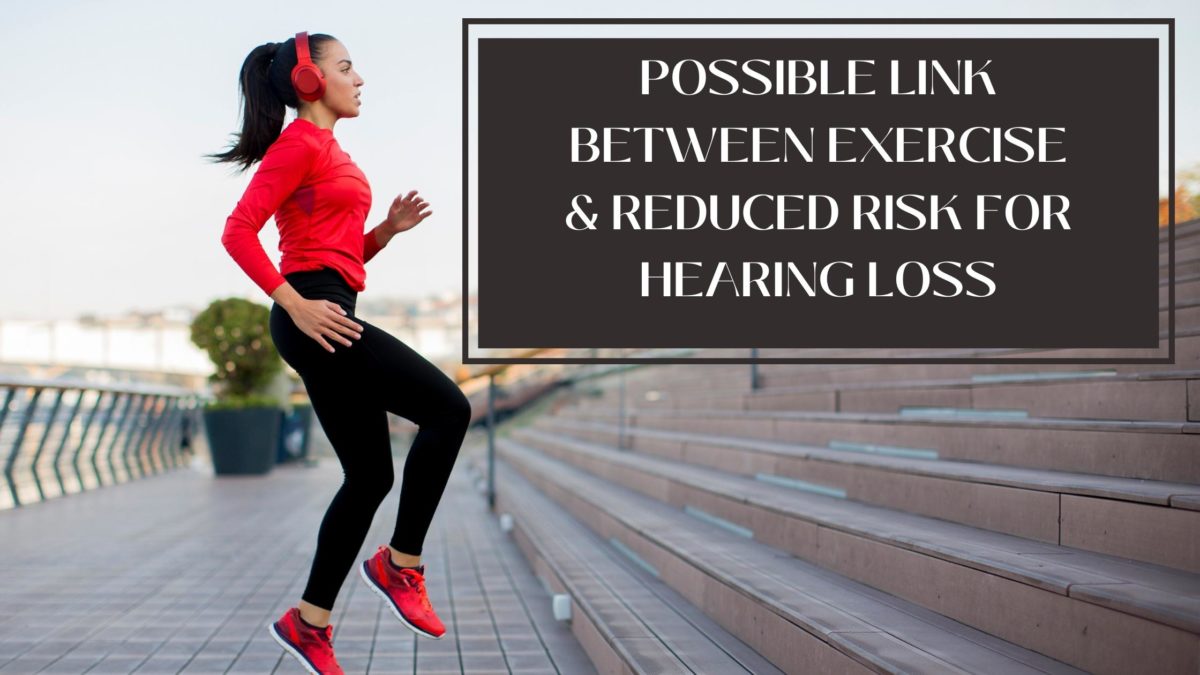The many benefits of exercise are commonly known: reduces health risks, boosts energy, contributes to a longer lifespan, etc. But less recognized are the ways that exercise can also benefit your hearing health. Studies show that exercise can reduce the risk of developing hearing loss, one of the most prevalent medical conditions people experience today.
Link Between Exercise & Reduced Risk for Hearing Loss
Existing research highlights a correlation between exercise and reduced risk of hearing loss. Studies show that exercise can contribute to enhanced hearing health. This includes a 2016 study published in the Journal of Neuroscience where researchers investigated the impact of exercise on hearing health by studying mice. This involved two study groups: one was of mice who were mostly sedentary and the other consisted of mice who exercised. Researchers found that over their lifetime:
- Sedentary mice experienced 20% hearing loss
- Mice who exercised experienced only 5% hearing loss
Specific observations researchers made include the following:
- Sedentary mice: lost important hair cells in their inner ear which play a critical role in how sound is absorbed and processed and they had fewer nerve cells that are responsible for sending sound information to the brain.
- Mice who exercised: 95% maintained active, healthy hearing. The mice who exercised who did experience some hearing loss did so at a much slower rate than the sedentary mice.
These findings support other studies that have shown that older adults who exercise regularly also maintain stronger hearing health compared to those who do not. Identifying exercise as a modifiable lifestyle factor that can reduce hearing loss is important. Hearing loss is a pervasive health issue, affecting over 48 million people today. It is often permanent so identifying strategies people can implement to reduce their risk can significantly protect one’s health and wellness.
How Exercise Improves Hearing Health
How exactly is exercise related to hearing? Well, there are a few ways that exercise can improve hearing health. Exercise strengthens cardiovascular health which is vital for many of the body’s systems including hearing. The heart and blood vessels circulate blood throughout the body which allows the flow of nutrients and oxygen – a process that sustains the body. Cells require oxygen which they receive through a healthy circulation system. There are thousands of sensory cells in the inner ear that play an essential role in how we process sound. These hair cells convert incoming soundwaves into electrical signals which get sent to the brain. The brain is then able to analyze these signals, assigning meaning to them, allowing us to understand what we hear.
Exercise supports cardiovascular health in several ways. This includes lowering blood pressure, reducing inflammation, reducing stress hormones, improving muscles’ ability to get oxygen out of blood, etc. This strengthens the cardiovascular system which enhances the circulation of blood and oxygen throughout the body, including the ears. Healthy blood and oxygen flow to the ears support the cells, nerves, and bones that are a part of the auditory system – the sensory system for hearing.
Tips to Integrate Exercise Into Daily Life
Exercising can feel like an overwhelming task. But exercise does not have to mean intense workouts, gyms, and equipment. Mild exercise can improve hearing health and there are simple ways you can integrate more physical activity into your daily life. A few ways include:
- Take a daily walk. This is a simple way to engage in physical activity. Taking a walk does not require much and you can choose how short or long of a walk you’d like to take. This can also help you destress and be outdoors.
- Practice stretching. Doing yoga, tai-chi, or gentle stretches at your own pace is a great way to increase blood flow and activate your body. This can also reduce stress, be meditative, and calming.
- Find an active hobby. Numerous active hobbies can keep your body active. This includes golfing, swimming, biking, dancing, etc. which are great ways of exercising while doing something you enjoy.
Integrating mild exercises into your daily life offers numerous benefits. In addition to strengthening cardiovascular health and reducing the risk of hearing loss, these strategies can help you destress and keep you engaged. Contact us to learn more about your hearing health.

